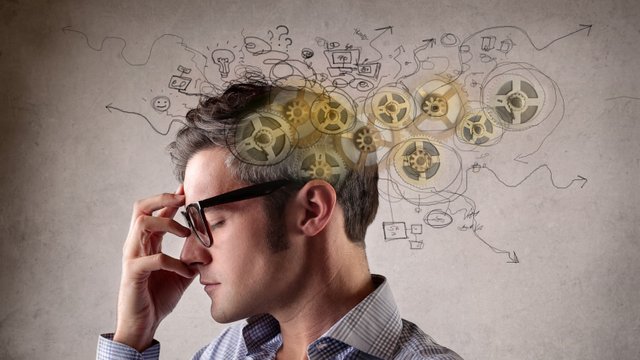The nine types of intelligence
 1. Natural intelligence
1. Natural intelligence
The ability of humans to distinguish between living organisms (plants and animals), as well as their sensitivity to other things in the natural world (cloud, rock formations), has been determined. This ability has a clear value in our past of fishermen, university graduates, and peasants, as it is still central in roles such as botany and cooking, the chef still uses this kind of "natural intelligence" to differentiate between the ingredients of cooking, and the world of plants uses its natural intelligence to differentiate Between species or plant species. It is also expected that much of our society is exploiting its natural intelligence; which includes the distinction between cars, sports shoes, make-up types, and admiration.
2. Musical Intelligence (Smart Music)
Musical intelligence is the ability to distinguish rhythm, bell and tone. This enables us to recognize, create, reproduce and think about music. As evidenced by the singers, composers, musicians and listeners. Interestingly, there is often an emotional relationship between music, emotions and athletic intelligence. Musical intelligence may also be involved in common thinking processes. Young people with this kind of intelligence are usually singers or patrons. They are usually fully aware of sounds that others might miss.
3. Mathematical and logical intelligence
Is the ability to calculate, identify and consider propositions, hypotheses, and solve complex mathematical processes. As it enables us to understand the relationships and communication and the use of abstract and symbolic thinking and the skills of sequential thinking and modes of thinking inductive and deductive. Logical intelligence is usually well developed by all scientists, mathematicians and investigators. Young people with logical intelligence are usually interested in patterns, categories and relationships and turn them into computational problems, strategic games or experiments.
4. The existential intelligence
It is the sensitivity and ability to address deep questions about human existence such as the meaning of life, why we die, and how we got here.
5. Personal intelligence
It is the ability to understand and deal effectively with others. It includes verbal and nonverbal communication, the ability to observe differences between others, sensitivity to the mood of others, and the ability to listen to multiple views. Teachers, broadcasters, actors and politicians all have personal or social intelligence. Young people and young people who possess this kind of intelligence are often leaders among their peers and very excellent in social communication, and understand the feelings and motives of others well.
6. Physical and motor intelligence
It is the ability to manipulate organs and use many physical skills. This intelligence also includes sense of timing, improvement and mastery of skills through the union of body and mind. This intelligence is usually very sophisticated when athletes, dancers, surgeons and artisans.
7. Language intelligence
Is the ability to think about words and use and appreciate language to express complex meanings. This intelligence enables us to understand the order and meanings of words, and to apply language skills to think about our use of language. This intelligence is a common human competences on a large scale and be poets, novelists, journalists, broadcasters and preachers. Young people with this intelligence have the hobby of writing, reading, reading stories and solving crosswords.
8. Internal Intelligence (from within the same person)
It is the ability to understand one's self, thoughts and feelings and to use this knowledge in planning, directing, and directing the individual's own life. And also the ability to assess the human condition. This kind of intelligence is when psychologists, spiritual leaders and philosophers. Where they have the ability to appreciate their own feelings and motivate themselves.
9. Spatial Intelligence (Smart Images)
It is the ability to think in three dimensions. These basic capacities include mental images, spatial thinking, image manipulation, technical skills, drawing, and active imagination. This kind of intelligence is achieved by pilots, sculptors, painters and architects. The young people who possess this intelligence are fascinated by mazes or jigsaw puzzles and spend their free time drawing and daydreaming.
Moved from Howard Gardner
Congratulations @mhdmansour! You have completed some achievement on Steemit and have been rewarded with new badge(s) :
Click on any badge to view your own Board of Honor on SteemitBoard.
For more information about SteemitBoard, click here
If you no longer want to receive notifications, reply to this comment with the word
STOP